

When comparing variables in most programming languages, there is a difference between comparing values and comparing objects. Here is an example to compare two strings in Javascript:
let v1 = "vera"
let v2 = "vera"
let c1 = "chuck"
console.log(v1 === v2);
console.log(v1 === c1);
result:
true
false
As expected, if you compare strings "vera" to "vera", the result is true. Now let’s create a class that holds the id and name of the employee:
class Employee {
constructor(id, name) {
this.id = id;
this.name = name;
}
}
This allows you to create employees like Vera:
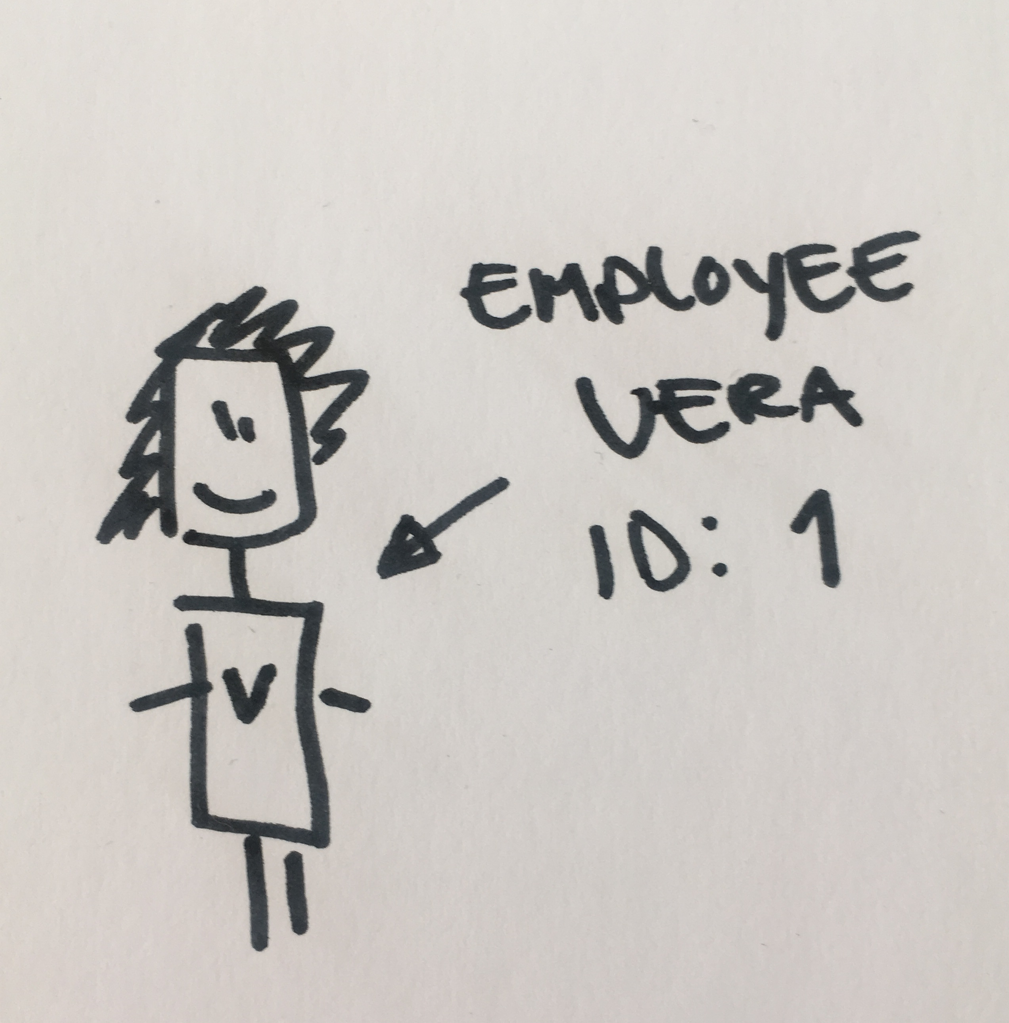
let v1 = new Employee(1, "Vera");
let v2 = new Employee(1, "Vera");
let c1 = new Employee(2, "Chuck");
console.log(v1 === v2);
console.log(v1 === c1);
result:
false
false
Perhaps you already expected both compare results to be false. But why is that? And when is this going to be important?
let employees = [
new Employee(1, "Vera"),
new Employee(2, "Chuck"),
new Employee(3, "Dave"),
]
let vera = employees[0];
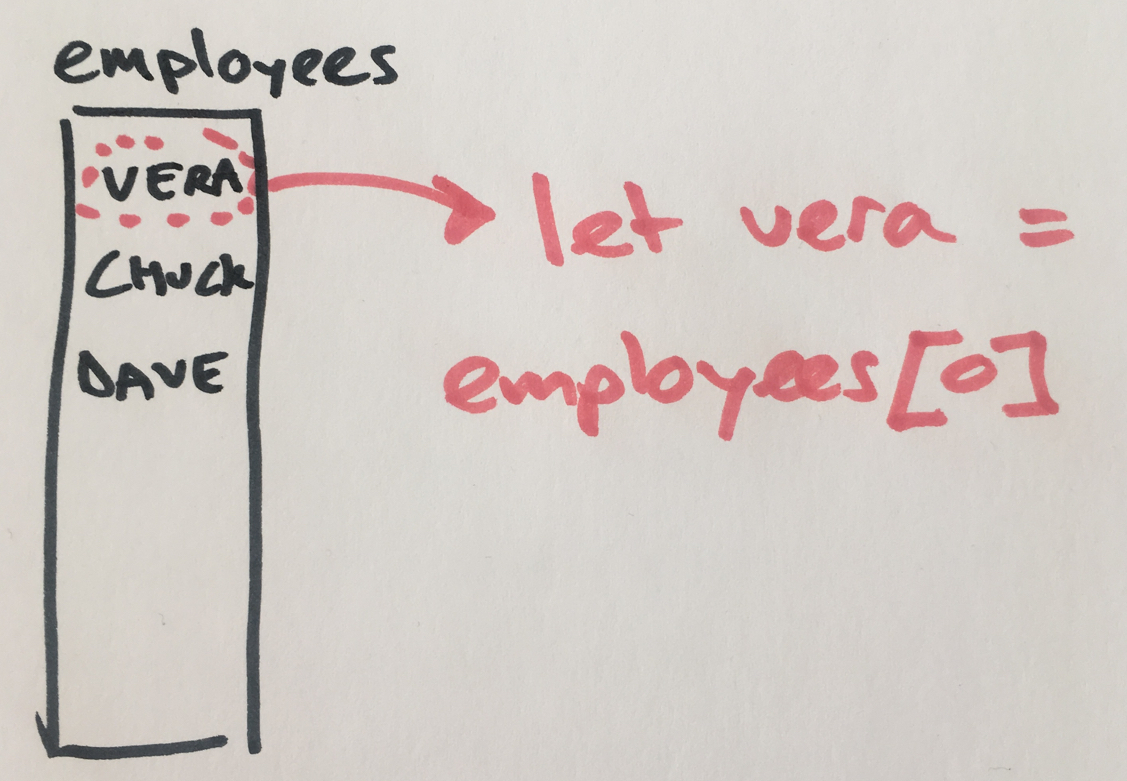
If you compare the first item of the list to the variable vera, the result is true because both point to the same object:
console.log(employees[0] === vera);
result:
true
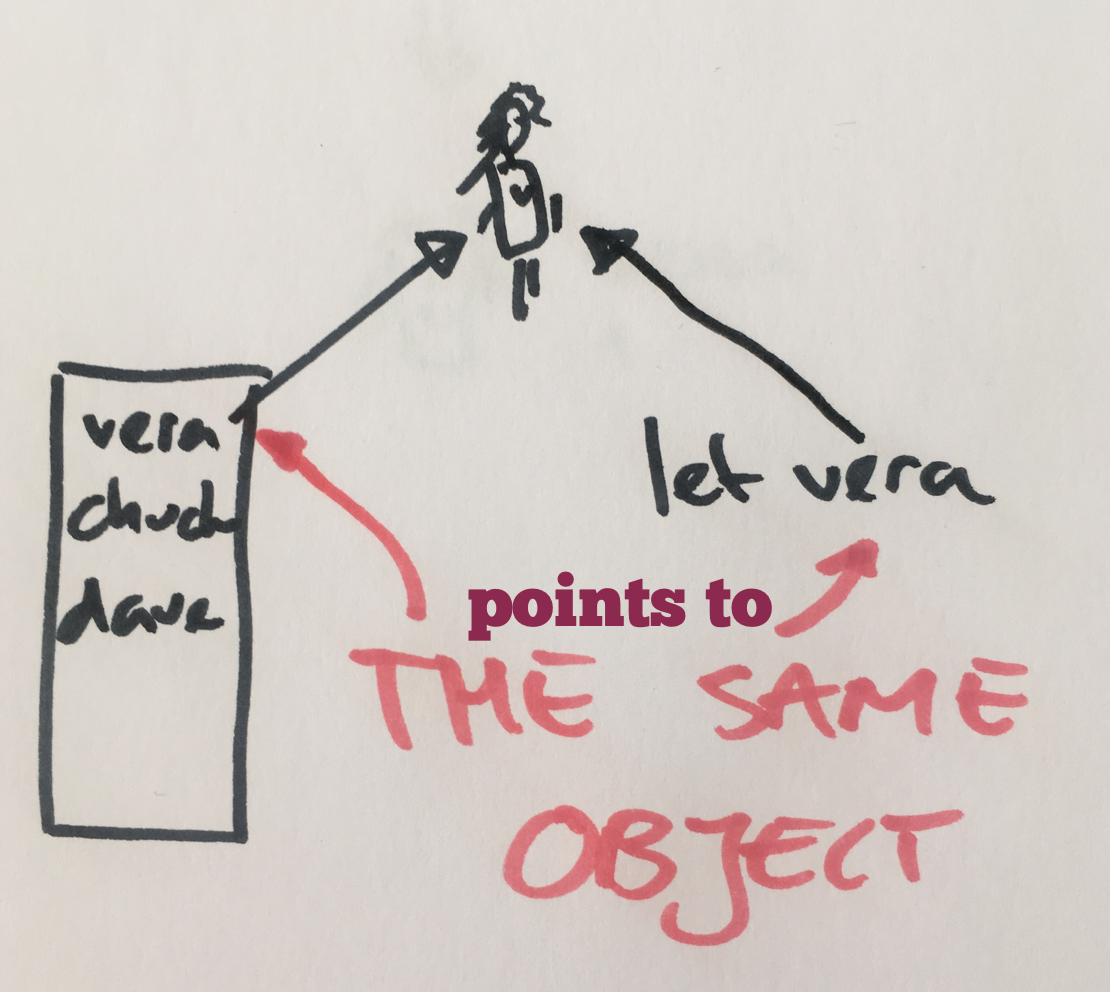
A common scenario is serializing and deserializing objects. For many different reasons you might construct an object from json or a html data attribute.
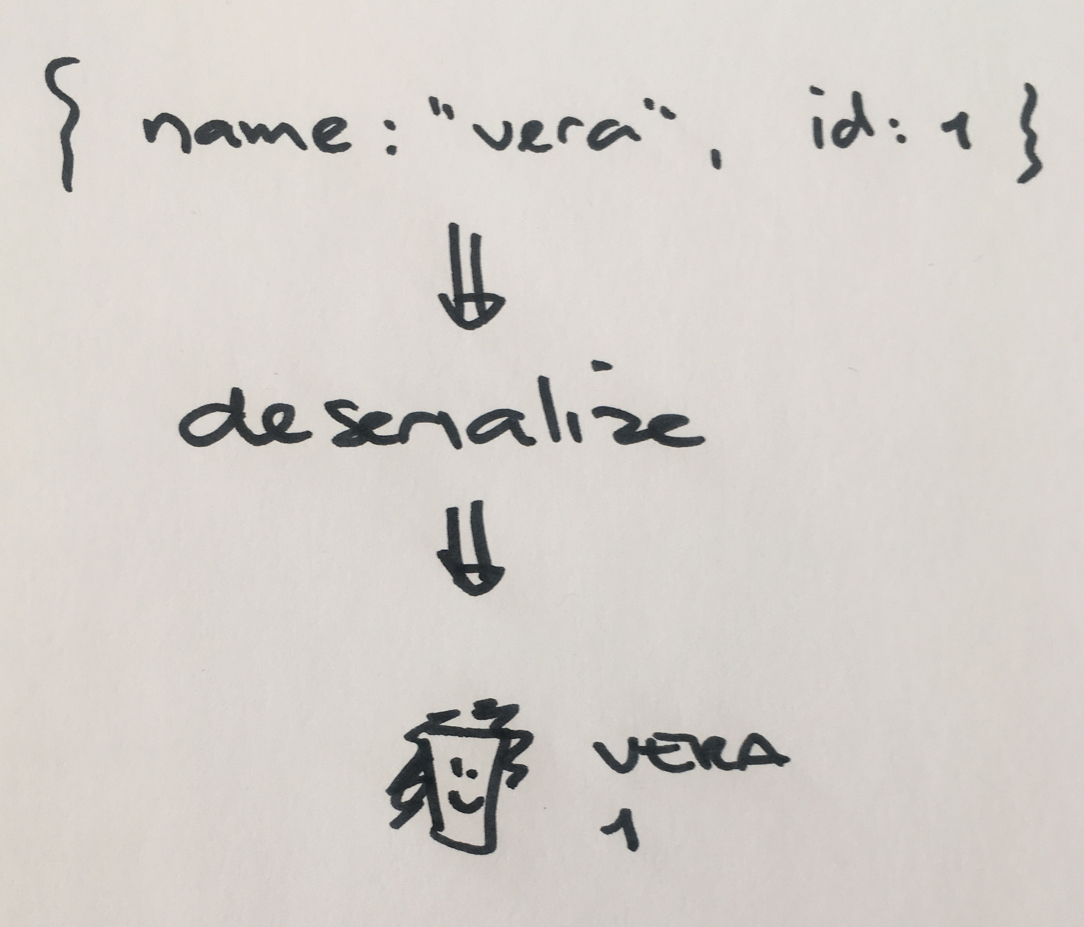
The object created from deserializing, is not the same object as the original object in your lists.
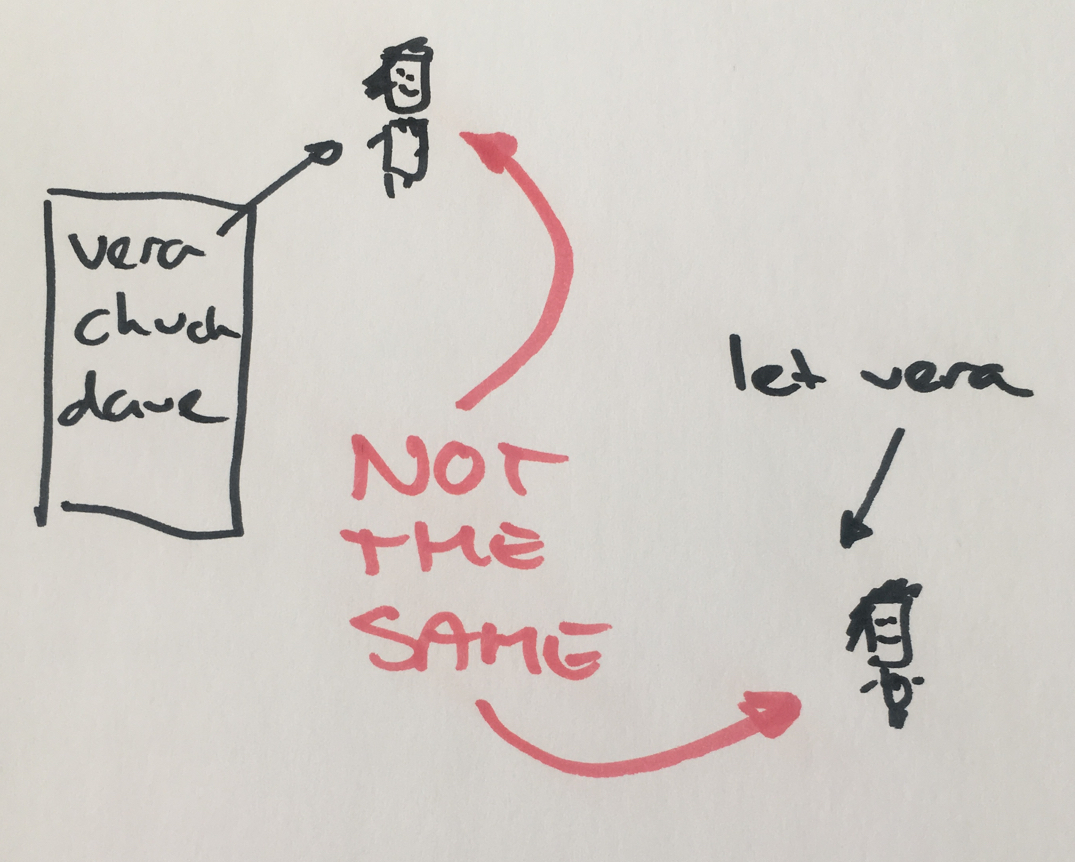
Using == or === to compare the two objects is not going to produce the result you want. You need to check for equality in a different way.
Start by adding a hash function that returns a unique identifier for an object. In our case, an employee has an id that we consider unique. The hash function return the id.
class Employee {
constructor(id, name) {
this.id = id;
this.name = name;
this.hash = () => this.id;
}
}
let vera = new Employee(1, "Vera")
console.log(vera.hash());
result:
1
class Employee {
constructor(id, name) {
this.id = id;
this.name = name;
this.hash = () => this.id;
this.equals = (other) => {
if (other === null && this !== null) {
return false;
}
return this.hash() === other.hash();
}
}
}
Now variables that point to different objects –but represent the same data– can be checked for equality like this:
let vera1 = new Employee(1, "Vera")
let vera2 = new Employee(1, "Vera")
let chuck1 = new Employee(2, "Chuck")
console.log(vera1.equals(vera2));
console.log(vera1.equals(chuck1));
result:
true
false
If at a later moment, your class needs to be unique in a different way, you can change the hash function without touching the equals function.